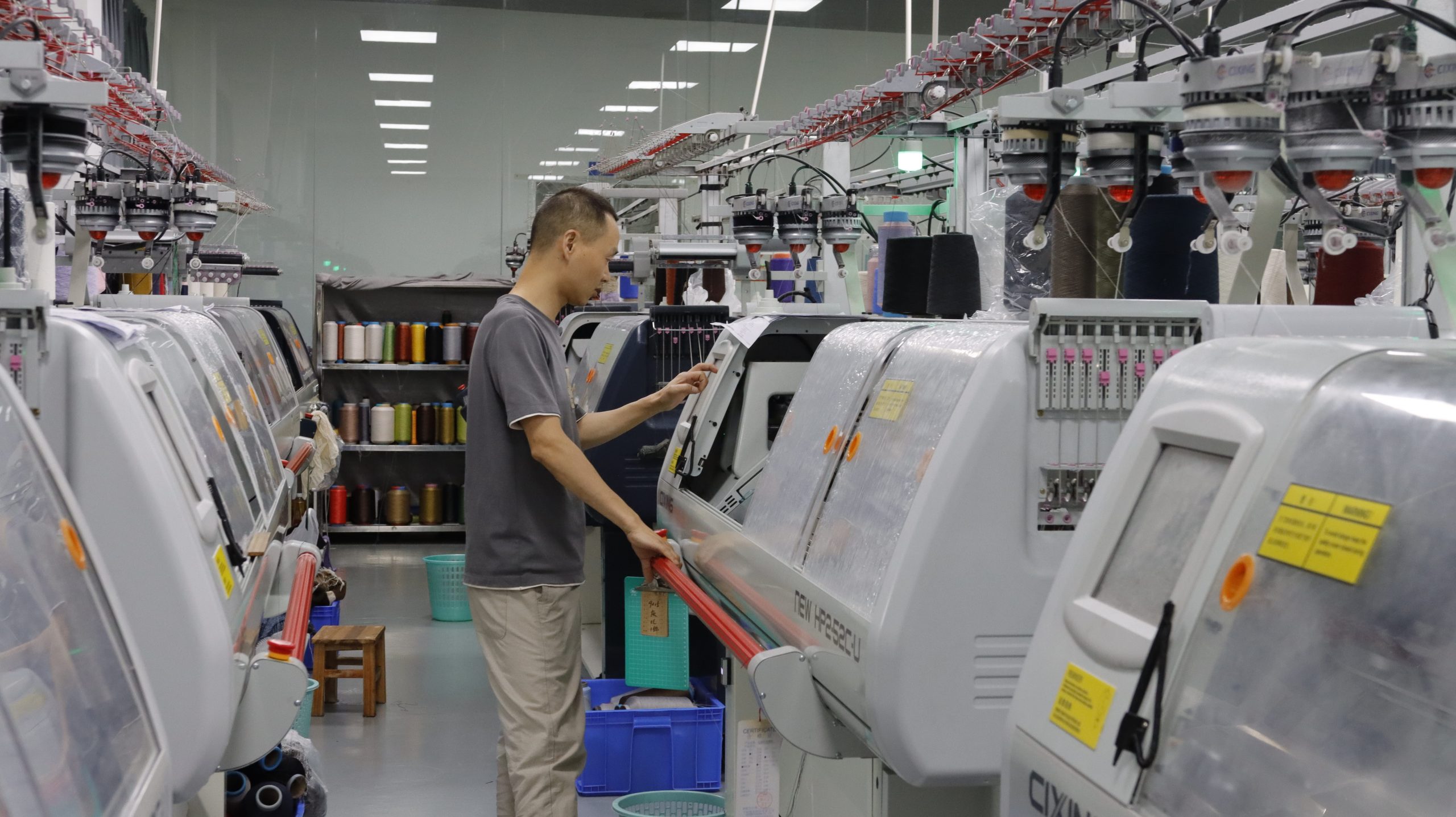Certificazione sostenibile
La certificazione e l’etichettatura di sostenibilità non sono solo un onore per i produttori di maglioni, ma anche un modo importante per dimostrare ai clienti e alla comunità globale che si impegnano per una produzione sostenibile. Queste certificazioni ed etichette promettono una serie di principi, dalla tutela ambientale alla responsabilità sociale, garantendo tracciabilità e credibilità lungo tutta la catena di produzione.
Una certificazione comune è “Commercio equo e solidale, “che sottolinea l’impegno del produttore nei confronti dei diritti dei lavoratori e del benessere della comunità. Ottenendo la certificazione Fair Trade, i produttori si impegnano a pagare salari equi, a fornire un ambiente di lavoro sano e sicuro e a sostenere progetti comunitari. Questa certificazione non solo contribuisce a migliorare la qualità della vita dei lavoratori, ma aumenta anche la trasparenza del processo produttivo e garantisce la legalità e l'equità del processo produttivo.
Certificazione biologica
Inoltre, “certificazione biologica” è un altro marchio importante, soprattutto per i produttori che utilizzano materiali in fibra organica. La certificazione biologica è un meccanismo di certificazione per i processi di produzione agricola e alimentare che seguono specifici standard e pratiche di agricoltura biologica. Garantisce che i prodotti siano prodotti, trasformati, confezionati e distribuiti in conformità con una serie di rigorosi standard di produzione biologica, compreso l’uso di fertilizzanti organici, l’assenza di pesticidi chimici e sintetici e l’adesione a pratiche agricole sostenibili. La certificazione biologica garantisce che l’intera catena di fornitura, dalla fattoria al prodotto finito, sia conforme agli standard dell’agricoltura biologica, eviti l’uso di pesticidi chimici e sostanze chimiche di sintesi e aiuti a ridurre gli impatti ambientali negativi. Le fibre organiche sono generalmente più rispettose dell’ambiente e anche migliori per la salute di chi le indossa perché non lasciano sostanze nocive.
Standard globale per i tessili organici
Un’altra certificazione molto apprezzata è il Global Organic Textile Standard (GOTS), che è una delle certificazioni tessili organiche più utilizzate al mondo. GOTS è stato sviluppato da un gruppo multilaterale di esperti del settore tessile biologico provenienti da tutto il mondo. Lo standard si applica alla lavorazione e produzione di prodotti tessili, compresa la filatura, la tessitura, la tintura, il finissaggio, la produzione e l'imballaggio. Il GOTS richiede che tutte le sostanze chimiche utilizzate nella produzione tessile soddisfino rigorosi standard ambientali, compresa la coltivazione e la raccolta di fibre organiche, nonché requisiti di responsabilità sociale nel processo produttivo, come i diritti dei lavoratori e le condizioni di lavoro.
GOTS è uno standard riconosciuto a livello mondiale per la produzione tessile biologica che aiuta i consumatori a identificare e selezionare prodotti tessili che soddisfano gli standard ambientali. Copre l'intero ciclo di vita del prodotto, dalla coltivazione biologica delle materie prime alla produzione e confezionamento del prodotto finale.
La certificazione GOTS garantisce la produzione biologica, la tintura e la lavorazione della fibra rispettose dell'ambiente, nonché il rispetto degli standard socialmente responsabili. I produttori ottengono la certificazione GOTS per aggiungere credibilità di sostenibilità ai loro prodotti, poiché la certificazione GOTS si concentra non solo sulla fibra stessa, ma anche sull’intero processo di produzione.
In conclusione, la certificazione e l’etichettatura della sostenibilità sono un modo importante per i produttori di maglioni di comunicare ai consumatori il loro impegno e i loro sforzi nella sostenibilità. Queste certificazioni ed etichette non sono solo rispettose dell’ambiente, ma contribuiscono anche a migliorare il benessere dei lavoratori, costituendo così un esempio positivo per lo sviluppo dell’industria della moda sostenibile. Scegliendo produttori certificati ed etichettati, i consumatori possono anche partecipare agli sforzi per sostenere la sostenibilità e contribuire a un futuro più sostenibile.

 English
English Deutsch
Deutsch Français
Français Italiano
Italiano Español
Español Русский
Русский Polski
Polski Nederlands
Nederlands Svenska
Svenska

